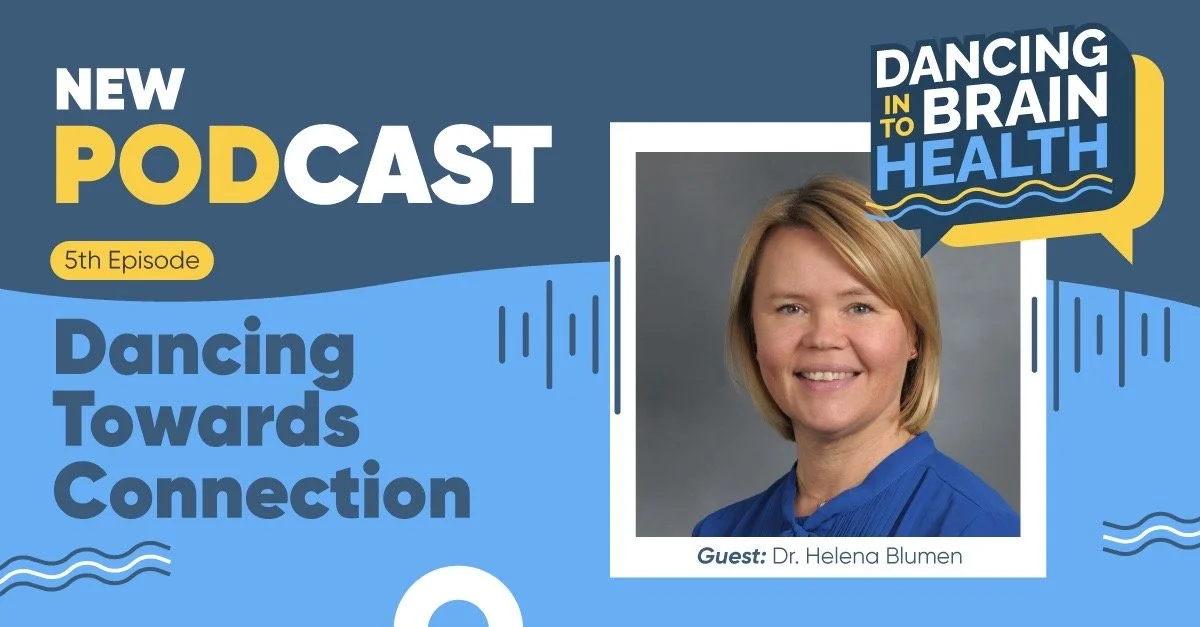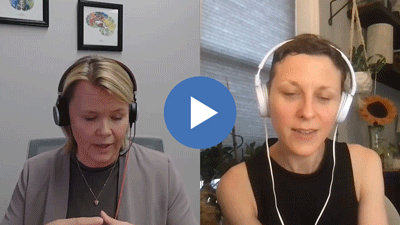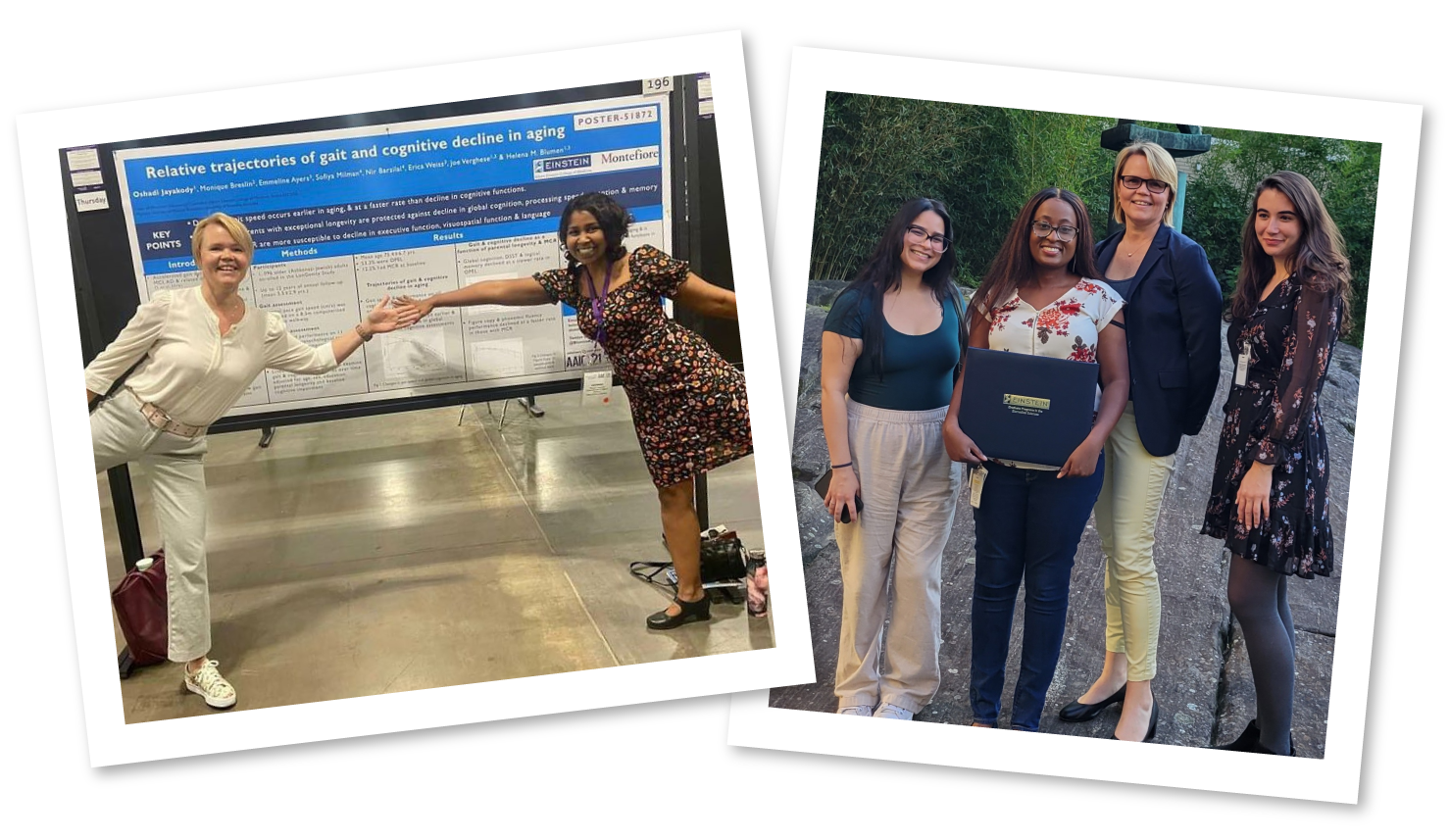Dancing into Brain Health (S1 Ep5): Dancing Towards Connection w/ Dr. Helena Blumen
Recent focus in global research on brain health has emphasized modifiable risk factors which at various points in our life positively influence our brain health trajectories. In fact, as highlighted by the Lancet Commission, we know that approximately 45% of adverse brain health in the form of dementia could be mitigated by 14 risk factors across our life.
Much of this research embraces the understanding that our brains are plastic (malleable) and that the actions/inactions we take, our social and physical environment and our biology all work together to support our cognitive aging. It also centers the understanding that our brain is embodied and that our interactions in and through our bodies have an impact on our brain health.
This time on Dancing into Brain Health, our guest is cognitive scientist Dr. Helena Blumen. Dr. Blumen is one of the leading researchers investigating the trajectories of modifiable risk factors of the brain in aging and Alzheimer’s Disease and Related Dementias. Her early career research helped put social dancing on the map as a potential promoter of brain health through investigations of gait as a prodromal brain health marker. Her latest research is investigating another important modifiable risk factor for brain health, social connection.
Studies suggest that feeling lonely can increase the risk of all-cause dementia by around 31%. Although studies disagree on the exact impact of social isolation on dementia risk citing 27-60% increased risk, the detrimental impact is undeniable.
In today’s episode we discuss Dr. Blumen’s latest research which is illuminating some of the individual risk factors that can contribute to this, what structures are affected in our brains when we experience social connection/disconnection and ways we can all take actions to bolster our social connections as we age.
Learn more about Dr. Helena Blumen here or follow her on LinkedIn.
Read some of Dr. Blumen’s work:
Gray Matter Volume Covariance Networks, Social Support, and Cognition in Older Adults
Gray matter volume covariance networks associated with social networks in older adults
This article shows that living with someone and volunteering or working in old age is a associated with a reduced rate of cognitive decline in aging compared to those that live alone and/or do not volunteer or work for pay.
This article suggests that loneliness is associated with decreased physical activity in widowed but not married or unmarried individuals
This article suggests that people with robust (tangible) social support show a reduced decline in mobility (simple and complex walking) in aging.
This article shows that robust (tangible support) reduces the incidence of MCR (motoric cognitive risk syndrome)
This episode of Dancing into Brain Health was edited and produced by me, Magda Kaczmarska and Hilary Brown-Istrefi. The music for this show is the title cut from the album, Critical Path by Joe Venegoni and Carl Weingarten.
Highlights from the episode:
“I was always interested in social relationships and social engagement. I actually did my dissertation on collaborative memory. I looked at when people collaborate with others, whether they did better on memory tests. And what we showed in essence was that, yes, they might lose something during the collaboration, that's collaborative inhibition, but later on they actually benefit from that collaboration. So individually they remember more information.”
ABOUT DANCING INTO BRAIN HEALTH PODCAST
Join host Magda Kaczmarska, dancer, researcher, Atlantic Fellow for Equity in Brain Health and executive director of arts and health nonprofit, DanceStream Projects, in uncovering the interconnections of dance, brain health and community. Each episode Magda brings together leading researchers, artists, advocates and thought leaders to illuminate the magical interconnections of dance and brain health and explore their influence on all aspects of our lives.
* New Episodes every month! *
Follow us on IG: @ dancestream_projects or email us at: magda@dancestreamprojects.com



